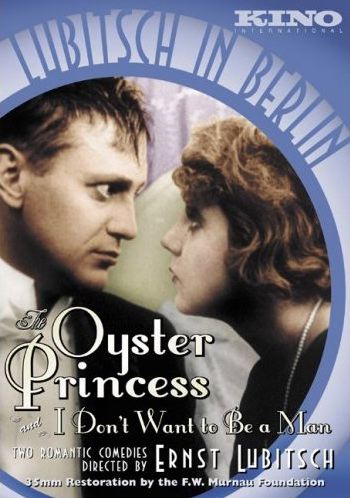
The first thing to be said about The Oyster Princess, from 1919, one
of the films recently released in Kino's “Lubitsch In Berlin” series, is
that there's little evidence in it of “the Lubitsch touch” — that
gossamer comedy of suggestion and indirection that came to characterize
the director's mature style.
The Oyster Princess is very broad farce, verging on slapstick at
times. That said, though, the film, for all its aggressive silliness,
has remarkable stylistic assurance and consistency — it's witty,
charming and often very funny. What it resembles most closely are the
operettas of Offenbach, or rather of his librettists Henri Meilhac and
Ludovic Halevy, which manage to combine delirious frivolity with an edgy
satire of aristocratic pretensions. The style is frothy and subversive
at the same time.
The Oyster Princess has a preposterous plot, involving a marriage
under false pretenses, and equally preposterous depictions of
aristocratic dementia that often veer into the realms of the surreal.
(In some ways they are lighter-hearted versions of Von Stroheim's dark
and grotesque portrayals of these same aristocratic circles.) But
there's more to it than that, just as there's more to Offenbach than his
farcical plots — there's Lubitsch's extraordinary cinematic
imagination, which at times causes the film to soar into the same
ethereal realms that Offenbach's music inhabits.
The wedding scene, for example, involves the sublime choreography of an
army of servants in action, and an even more delirious set-piece in
which the guests, and even the servants, break out in an hysterical
episode of fox-trotting — travesties of actual behavior organized with
exhilarating plastic grace. The film transcends itself in these
moments, just as Offenbach's melodies transcend their dramatic vehicles.
So if “the Lubitsch touch” isn't on display here, except in a few stray
scenes, the Lubitsch genius explodes often enough to make us realize we
are in the company of a master of the medium, even if he's a master
still in search of a distinctive personal style.
